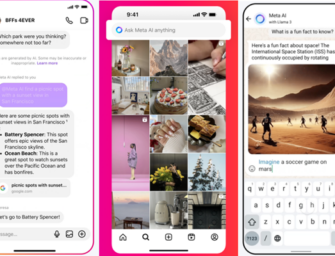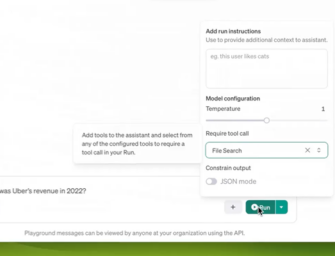Abena AI’s Voice Assistants Speak African Languages Untouched by Google Assistant and Alexa
 Software studio Mobobi has published Abena AI, the first voice assistant fluent in Twi (also called Akan Twi), the most widely spoken language in Ghana. Developer Nana Ghartey created the Abena AI Android app to converse in Twi to open up voice AI to those who don’t speak English or other common voice assistant languages, with an eye toward adding more African languages and Africa-centered features that aren’t central to voice assistants like Alexa and Google Assistant.
Software studio Mobobi has published Abena AI, the first voice assistant fluent in Twi (also called Akan Twi), the most widely spoken language in Ghana. Developer Nana Ghartey created the Abena AI Android app to converse in Twi to open up voice AI to those who don’t speak English or other common voice assistant languages, with an eye toward adding more African languages and Africa-centered features that aren’t central to voice assistants like Alexa and Google Assistant.
Abena AI
Twi is spoken by about 8 million people, mostly in Ghana. To compensate for potentially patchy internet limiting Abena’s usefulness, the app has an offline mode that sustains most of its functions. The app can handle much of what English-speaking voice assistants do, including checking news and weather, setting alarms, operating smart home devices, and even reading out tweets. It also comes with more Ghana-centered features like allowing users to check, transfer, and recharge their mobile phone accounts and transfer money through connected payment apps. Abena recently extended its features to enable voice commands for speed-dialing and phone call control.
Ghartey is a largely self-taught programmer who grew up in rural Ghana with his grandmother. Ghartey has said in interviews that helping her with technology has been a major motivator for what became Abena AI, though he founded Mobobi in 2013 as a general Android app developer. Mobobi has published apps, including a limited voice AI that speaks his grandmother’s preferred Fante language, but Abena AI represents Ghartey’s long-term ambitions for AI in Africa. work has been leading.
“Voice technology has become one of the main ways people interact with devices but the world’s most popular voice assistants, Siri, Alexa & Google Assistant, still don’t support a single native African language. This means millions of people who speak African languages can’t use voice tech to do something as simple as checking the weather.=,” Ghartey explained in his description of Abena on Google Play. “Abena is here to solve this problem. Abena isn’t just a Twi Siri, Twi Alexa or Twi Google assistant clone – Abena solves problems faced by Africans in Africa. The best part is – unlike other popular virtual assistants – Abena.ai works offline; saving you money & protecting your privacy. A voice assistant for African languages.”
Interest in filling language gaps for voice assistants has grown in tandem with the spread of voice AI. For instance, Mozilla Foundation’s Common Voice project launched to support voice tech developers without access to proprietary data a few years ago. The Common Voice Database boasts more than 9,000 hours of 60 different languages and claims to be the world’s largest public domain voice dataset. Nvidia later made a $1.5 million investment in Mozilla Common Voice and started working with Mozilla on voice AI and speech recognition. Africa’s incredible linguistic diversity and the relatively sparse digital representation of those languages suggest a huge and underserved market. African demand fueled the $3.4 million investment by Mozilla Common Voice to create linguistic databases as a precursor for a voice assistant that can speak Kiswahili, known elsewhere as Swahili. The unmet need is also why South African news provider Media24 ha to build its own synthetic voice generator instead of relying on Google or another tech giant. The generic ones struggled so much with appropriate accents and vocabulary as to make many articles sound like nonsense.
Follow @voicebotai Follow @erichschwartz
Mozilla Common Voice Launches Grant for Kiswahili Language Voice Tech
First Icelandic-Speaking Voice Assistant Debuts as Mobile App
Meet the Only Voice Assistant That Speaks Greek, Serbian, Albanian, and Bulgarian








